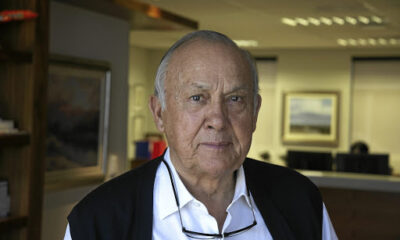Cape Town – President Jacob Zuma’s State of the Nation address (SONA) and the ensuing debate on it in parliament, show the great emphasis the South African government places on attracting investors and avoiding further downgrades by ratings agencies, Walter Lindner, German ambassador in SA, told Fin24 on Friday.
In his view, this focus by the SA government shows the realisation that economic matters touch all lives.
“The emphasis of the SA government on the economic topic is important for us. Of course there is a lot of talk about what is working well in the country and what not. This is fair, because only when governments improve can it lead to greater and greater benefits from implementing that which works,” said Lindner.
While the European Union as a whole is SA’s biggest trading partner, Germany as a single nation is South Africa’s second largest trading partner after China. In 2015 bilateral trade between SA and Germany was €15bn.
Accordingly, German investors account for one of the biggest investment groups in SA. Apart from investments in the motor vehicle industry, they are also active in, among others, the chemistry and renewable energy sectors.
There are about 600 German companies in SA, providing a total of about 100 000 jobs. These companies include global players like Siemens, Mercedes Benz, Volkswagen and BMW. There are also many family-owned small- and medium-size enterprises invested in SA over many decades. Lindner emphasised that these companies would not be in SA if they did not see opportunities here.
“Investors come and do their own checks and won’t come to a country just because a government tells them to,” Lindner said.
He said many of these businesses are planning substantial increases in their investments in the country. Although there will always be some things that could be improved, this shows how important it is to see the positive aspects of SA, Lindner said.
Investors usually want security, easy economic conditions for doing business, infrastructure, a stable working environment, a good legal framework and certainty on what they can expect.
In this environment labour unions also have a necessary role to play, in his view.
“A secret to success in Germany is that reason prevails between labour unions and employers. If employees ask for too much, the company will end up having to close. Therefore, one needs a respectable balance between labour and employers,” explained Lindner.
“Such a balanced view should take into consideration that strikes could lead to a company losing market share to a competitor. One must be aware that you could maybe get more money for a certain time, but then there might not be a company left after a while.”
To Lindner the German model of having workers represent at least a third of decision makers on company boards is a good one, because it brings a sense of ownership in the decision making process.
“Of course there will always be conflicting interests between labour and employers, but the German approach is just a model to show even in the labour sector you need to respect your partners,” he said.
As for the view that SA can be seen as the gateway to the rest of Africa, Lindner said this point is still valid as SA is the only industrialised hub in Africa. At the same time no country can afford to rest on its laurels and allow its competition to gain the upper hand.
“Governments must ensure a country remains in a good position and perform well,” said Lindner.
“South Africa is a unique country with a sad apartheid history. Of course this had to be corrected. Germany is supportive of an inclusive economy and supports black economic empowerment. Yes, there have been injustices of the past, but it is still important for both sides to profit.”
For the future of SA one must invest in training people and he is proud of what some German companies have managed to do in terms of their BEE score cards – especially regarding education and skills programmes.
“In a world where commodity prices are down, I think if it also important for SA to look at attracting investors in areas like manufacturing and tourism. Investors are important for growth and the creation of jobs,” said Lindner.
“Yes, there are challenges in SA, but there are also positive things, otherwise there would not be 600 German companies active in the country. We are here to help overcome them.”

 Forex2 weeks ago
Forex2 weeks ago


 Naira2 weeks ago
Naira2 weeks ago
 Naira4 weeks ago
Naira4 weeks ago
 Company News4 weeks ago
Company News4 weeks ago
 Billionaire Watch1 week ago
Billionaire Watch1 week ago




 Naira2 weeks ago
Naira2 weeks ago




 Naira4 weeks ago
Naira4 weeks ago




 Naira1 week ago
Naira1 week ago




















